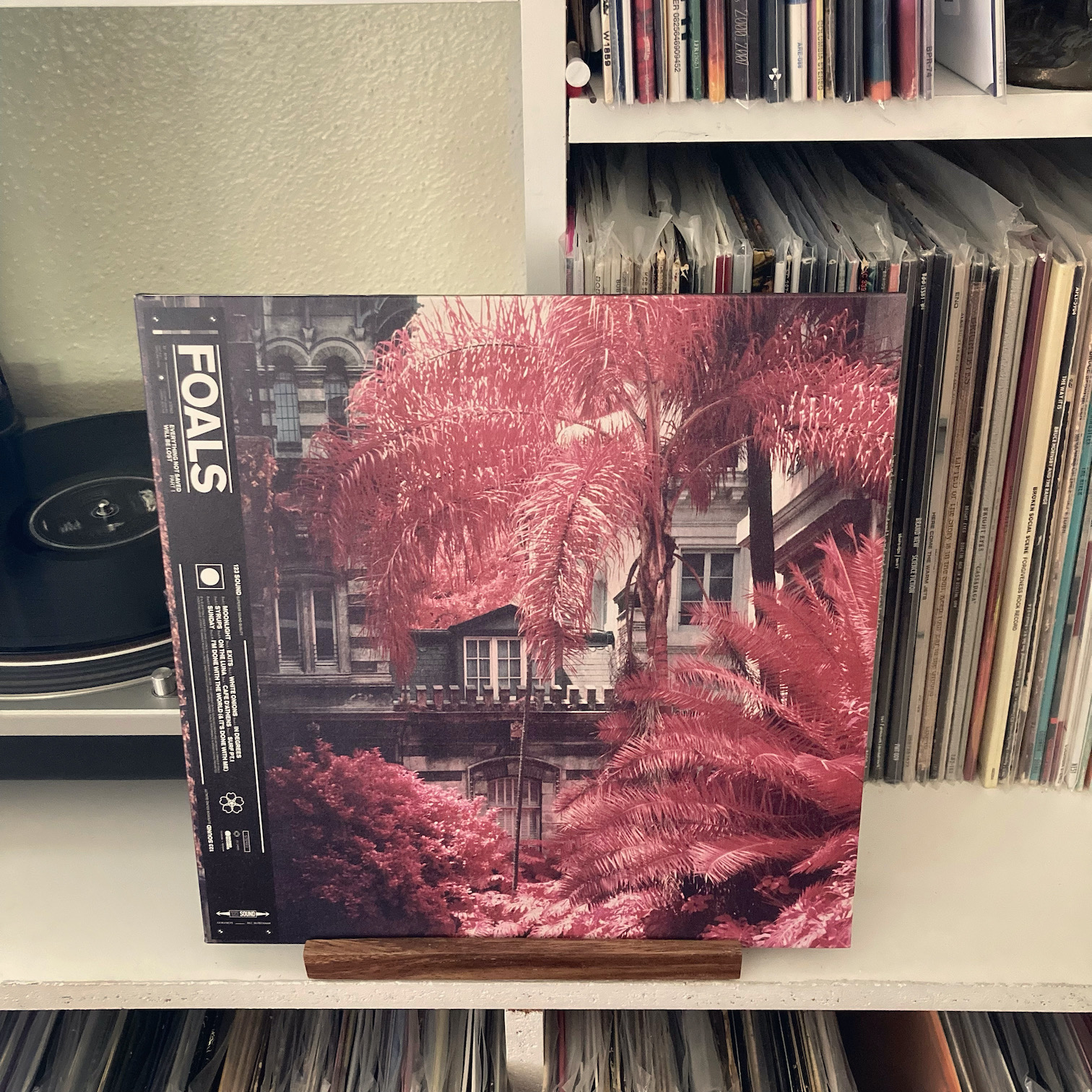
A trip to the record store used to be spontaneous. I would usually walk out with a small stack from bands I had never heard of before, or at least albums I had never listened to. These days, I’m far more intentional with my budget. I have a to-buy list that is constantly revisited and revised with repeated listens, organized by some careful calculus of how much I enjoy it and how inexpensively I can get the record.
Sometimes though, the old tinge of spontaneity will spark again, and I’ll take a calculated risk. In this case, I had been familiar with Foals for many years—Holy Fires still gets a decent amount of play time, but I’ve never ventured into the rest of their catalog. At least, until I found a sealed copy of Everything Not Saved Will Be Lost—Part 1 (a title borrowed from the warning screen from the original Legend of Zelda) at a local shop for a price I couldn’t ignore. And as gambles sometimes do, this one paid off.
I should probably clarify that I did listen to some of this record (or Part 2 that came out a few months later—I can’t remember) when it came out, but not deeply, and not at length. My initial reaction was marked with disappointment that they had veered away from the U2-by-way-of-Bloc Party guitar-driven indie rock that I came to love.
But listening to it now, it’s hard to stay disappointed. While the dancy tracks like “My Number” were my least favorite moments of Holy Fires, I can’t resist the infectious grooves long enough to stay mad that they leaned all the way into that sound. It also helps that lyrically, Yannis Philipakkis spends more time ruminating on existentialism and apocalypse and less trying to rebuff a girl in a club. For instance, on “Exits,” he seeks solace from an ending world, singing “Now the sea eats the sky / But they say it’s a lie / There’s no birds left to fly / We’ll hide out,” all put to a plinking synth arpeggio and syncopated bass line.
While I usually have a moment of mourning for guitar bands that adopt a more synth-based approach, the intricate composition of these tracks makes it difficult to stay in that mood for long. From the brooding crawl of “Syrups” to the twinkling asymmetry of “Cafe D’Athens” to the pickup at the end of the ballad “Sunday,” the record is filled with inventive arrangements that feel like a dance party for a world being torn apart at the seams.
I’ll be honest and say that most of my purchase decision was driven by the fact that it was twenty dollars cheaper than any copy I could find online, so if I didn’t care for it, I could always sell it for a quick profit. If I wanted to do that though, I shouldn’t have listened to it, because there’s no way this is leaving my collection now.